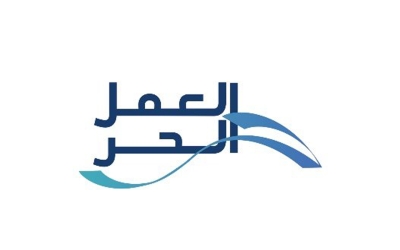
Freelancing in the Kingdom of Saudi Arabia refers to professions that citizens can engage in for their account based on their abilities, potential, and specialties. This concept has been crystallized in the Freelance Program launched by the Ministry of Human Resources and Social Development, aiming to tap into human potential and cater to individuals seeking income opportunities, those working on their accounts, and other citizens across various regions of the Kingdom. The program aims to enhance their productivity, skills, and experiences in suitable, stable, and productive endeavors
Freelance Program Role
The program contributes to organizing and incentivizing freelance work, facilitating the issuance of freelance work permits through streamlined procedures, and benefiting from the provided advantages and services. Additionally, it involves offering deals and discounts from partners to facilitate the work of freelancers holding these documents.
The Freelance Program achieves several benefits and goals for its beneficiaries by enhancing their productivity, skills, and expertise in suitable, stable, and productive tasks. It aims to diversify opportunities for job seekers to engage in freelance work, raise awareness within the community about the concept of freelance work and available opportunities, empower those interested in freelancing, and contribute to increasing individuals' income.
Freelance certificate in the Kingdom
The program defines freelancers as individuals who possess skills or knowledge in a specific field and provide their services to individuals or entities on an hourly or daily basis without receiving a fixed salary from a single employer. Freelancers benefit from the program through a freelance certificate, an accredited document issued by the Ministry of Human Resources and Social Development. It is granted to specialized individuals in various activities, allowing them opportunities to work independently in activities approved by the ministry through the freelance portal.
Freelance certificate holders benefit from incentives that enable the freelancers to perform their work with flexibility and independence. The incentives include optional registration in social insurance, contracting with public and private entities by utilizing the certificate as an official document, opening a bank account linked to the certificate, and using digital payment channels.
The certificate provides several features that help those working under the Freelance Program to conduct their activities easily and efficiently. These features include the ability to open a dedicated (commercial) bank account for freelancers, the option to benefit from the freelance financing product provided by the Social Development Bank (Nafath), the opportunity to opt for voluntary enrollment in social insurance schemes, as well as the ability to benefit from the advantages, discounts, and offers announced on the freelance portal.
Freelancing programs
Under the freelance umbrella, there are eight programs, namely: ride-hailing, delivery driver, specialized services, handicrafts, rural development, productive families, food carts, and accounting services.
The professions categorized under the specialized services in the freelance portal do not require specific permits. They involve activities based on skills in specific specialties and are founded on the basis of knowledge and experience. However, for the other categories, it is necessary to obtain a permit from the relevant authority first and then issue the freelance certificate. Proof of practicing the profession is demonstrated by attaching the necessary files related to the chosen profession.
The contribution of freelance to localization
Freelance work is considered one of the non-traditional methods of employment that supports localization. The number of beneficiaries has grown since the program's launch. By the end of the first half of 2023, approximately 2.358 million freelance certificates were issued, with more than 1.674 million freelance workers practicing in approved professions for freelance work documents.
An integrated technical portal for freelance work named "BAHR" was launched to create a simple, quick, and safe economic and social impact by connecting business owners and professional freelancers. In 2019, 12,502 freelancers registered on the platform. Registered freelancers exceeded forty thirty-six thousand in 2020 and seventy thousand in 2021.
"BAHR" Portal connects independent professionals with business and project owners, and provides an ideal working environment to develop their activities. It gathers many skills and specializations, including smartphone and website development, translation, writing, designs, sales and marketing, customer service, network management, data analysis, business and consulting, engineering, and planning.
Freelancing professions in the Kingdom
The Ministry of Human Resources and Social Development continued to develop the Freelance Program and approved controls for freelance work in 2019. To encourage and support the adoption of this non-traditional type of work, the Ministry announced the launch of the freelance portal's second phase with new features and services. More than 123 professions were approved, and their practitioners can receive a document that qualifies them to become freelancers.
The launch of the Freelance Program was linked with several awareness-raising and educational efforts, such as the role of the National Entrepreneurship Institute "Riyadah", which specializes in promoting a culture of self-employment and encouraging young men and women to manage their projects. Riyadah Institute was established to provide employment opportunities for the country's youth by encouraging and enabling them to enter the labor market and engage in freelancing.
"Riyadah" Institute promotes the work culture in general. By highlighting the advantages of freelance, the institute seeks to spread the culture of this type of work, prepare and supervise entrepreneurs, investigate investment opportunities, facilitate access to funding through its branches across the Kingdom's provinces, and provide services in various fields.
Freelance Program in the Kingdom
As part of the Ministry of Human Resources and Social Development's efforts to support self-employment and provide an appropriate and stimulating environment for work, creativity, and production, a memorandum of understanding was signed with the Transport General Authority, Human Resources Development Fund, and the Future Work Company during the third quarter of 2020. The MoU aimed at supporting Saudis working on the implementation of the Freelance Program for Ride-Hailing to increase the rate of Saudization in vital economic activities, as well as creating sustainable employment opportunities, and expanding the support and qualification of the workforce and its participation in the labor market.
The Freelance Program offers several opportunities that users can benefit from. The "Ride-Hailing" Freelance Program was also launched, targeting workers involved in ride-hailing activity through smartphone applications. The program is intended for the unemployed and is presented by the Saudi Human Resources Development Fund (HADAF) in cooperation with the Ministry of Human Resources and Social Development and the Transport General Authority, as the entity supervising the ride-hailing activity. It aims to raise localization levels by meeting this activity's needs and creating new job opportunities according to different working patterns.
The "Ride-Hailing" Program covers a significant segment of male and female citizens wishing to provide passenger transport services using smartphone applications and their private cars. Those citizens can join the Ride-Hailing Service Providers, provided that the applicants are not employed in the public or private sectors, regular students, retired, or have a commercial register (private business).
Entities supporting freelance work in the Kingdom
The implementation of the Freelance Program is not exclusive to the Ministry of Human Resources and Social Development but is complemented by the efforts of all relevant institutions and entities that provide jobs and enable male and female Saudis to work and be productive. In this regard, the Social Development Bank supports the Freelance Program through development funding, which is considered a critical factor in improving the efficiency and effectiveness of those wishing to embark on the self-employment journey, and enhance their productivity, skills, and expertise in convenient, stable and productive activities through the development and innovation of several funding products including, cash and car financing.
The Social Development Bank also provides the financing product "Nafath" to improve the performance of self-employed male or female citizens who can work or wish to increase their monthly earnings and specialize in a craft, experience, or skill. This product allows them to benefit from convenient financing for their businesses.
The "Nafath" financing product expands investment opportunities for the self-employed, thus motivating them to engage in this type of work while contributing to their sustainability. "Nafath" improves financial inclusion and the quality of life of Saudi citizens, in addition to reducing informal credit and unemployment rates.
Development of freelance work
The Future Work Company of the Ministry of Human Resources and Social Development was established in the fourth quarter of 2019 to develop the Freelance Program to empower and improve the skill sets of young men and women in the labor market. The average economic value of self-employment in the Kingdom reached about SAR7.4 billion in 2021 across various fields of self-employment and professions.
In 2022, the Ministry of Commerce and the Ministry of Human Resources and Social Development stipulated that in order to engage in e-commerce activity on a regular basis, the online store must obtain a commercial register from the Ministry of Commerce or a freelance certificate from the e-portal of the Ministry of Human Resources and Social Development.
Related quizzes
Related articles

